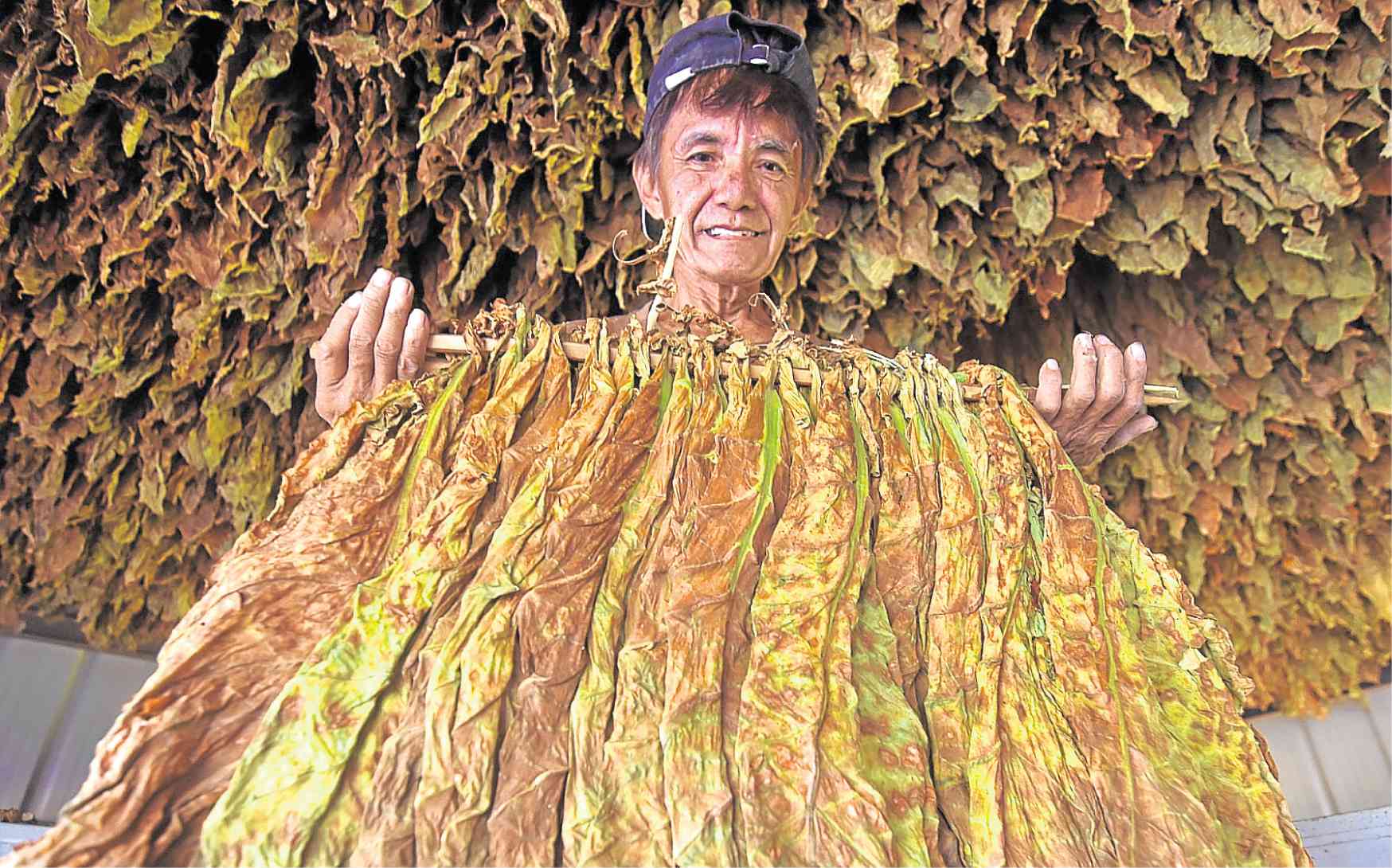‘Make tobacco a dangerous drug’

Credit to Author: cmiranda| Date: Tue, 30 Apr 2019 21:16:23 +0000
BAGUIO CITY, Philippines — If there’s an endgame in the campaign against smoking, it will be to classify tobacco as a dangerous drug so the country will no longer export tobacco grown by farmers, who can invest instead in other high-value crops, according to an advocacy group.
Lawyers advocating for tobacco control want Congress to set a period of transition for farmers to abandon tobacco farming and grow more marketable produce, such as dragonfruit, said Ben Visperos, legal counsel of Health Justice.
Visperos said the government had not complied with a provision of the Tobacco Regulation Act of 2003 (Republic Act No. 9211), which requires the state to “assist and encourage Filipino tobacco farmers to cultivate alternative agricultural crops to prevent economic dislocation.”
Election issue
Another law that increased excise on cigarettes and alcoholic beverages had set aside 15 percent to “help tobacco farmers in planting alternative crops or implementing other livelihood projects.”
Members of Health Justice and the Philippine Legislators’ Committee on Population and Development have been going around the country, asking voters to consider candidates in the May 13 elections who support the antismoking drive, as well as the proposed measures seeking a ban on e-cigarettes and another increase of taxes on tobacco products.
A transition period, which could be inserted in amended tobacco laws, would require local governments to initiate and finance alternative crop programs for tobacco farmers, Visperos said.
Many have contract farming arrangements with tobacco manufacturers, so the excise shares released to tobacco-producing provinces could be used to buy them out of debt, he said.
A 2016 report on the “economics of tobacco farming,” published by the Action for Economic Reforms and the American Cancer Society, established that “cultivating tobacco leaf in the Philippines does not typically generate high economic returns for small farmers.”
The report said: “Despite the apparent lack of significant financial return from tobacco farming, there remains a strong attraction to tobacco farming for many farmers. The assured market—even if prices are in long-term decline—and the easier access to credit are among the largest factors determining this decision to continue cultivating tobacco leaf.
Chronic indebtedness
“Even with what appears to be chronic indebtedness for farmers, the ability to generate cash on a relatively consistent [though not necessarily frequent] basis through tobacco farming serves as a lifeline for everyday sustenance and higher level needs such as education and health.”
Reducing or even eliminating tobacco supplies has cropped up in antismoking forums, so many advocates now want the government to classify tobacco as a dangerous drug, said Dr. Donabelle Tubera, tobacco control officer of the Baguio City health services office.
Tubera said the campaign against smoking had worked in Baguio. Citing a recent survey, she said smoking prevalence in the city had gone down to 17.6 percent from 34 percent in 2016, likely because families had become conscious about tobacco’s link to cancer, among other things.
She also said 80 percent of the smokers surveyed indicated that they wanted to quit the habit.